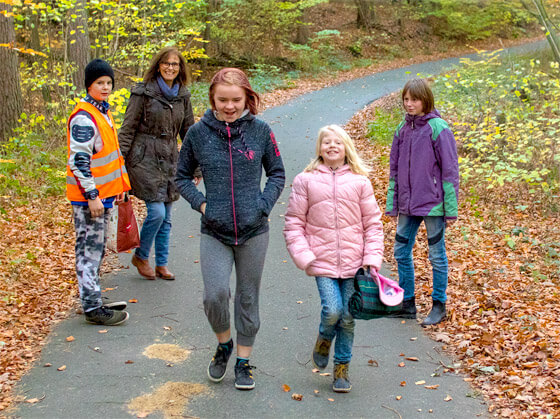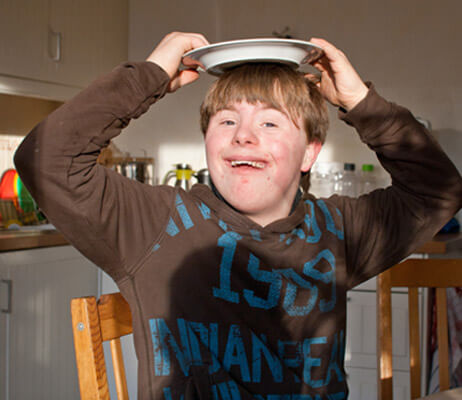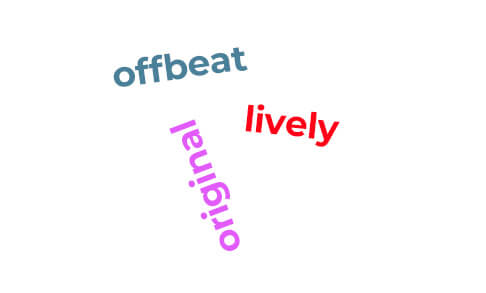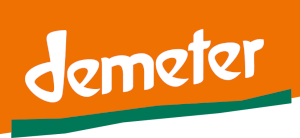Peronnik
Turning the everyday into Sunday

We are all wandering
and searching, just like
the boy Peronnik,
as told by the Breton
fairy-tale
Children and youth in need of care of the soul
The atmosphere in Sammatz is enriched in a particular way through Peronnik, where our 34 children and teenagers with special needs live. They have found a new home in six fully-equipped residential groups that are scattered throughout the village and are a natural part of the everyday Sammatzer life. You’ll usually find them on the farm; they clear out the horse and donkey stalls, feed the chickens, pet the cute stable cats and deliver the farm’s own milk across the village. Or you meet them while walking in the surrounding woods, mostly accompanied by farm/therapy dog Timmi, who wants to go out irrespective of the weather conditions and can entice those both young and old to take him for a walk with his innocent stare.
Part of the village community
The care of the animals on the farm and experiencing the life of the farmer is an integral part of the therapeutic concept of Peronnik. Many of the Peronnik children suffer from trauma and early childhood attachment disorders. Therefore, contact with animals, taking on responsibility and experiencing the daily rhythm that is exemplified by the animals, can have a healing effect. Another clear framework is participation in cultural village life. Peronnik children and children of the village celebrate annual festivals together, make a play together, and also make many beautiful handicrafts for the the Sammatzer Christmas market. In the summer the youths have sometimes enriched village life with the legendary Peronnik Circus.


Learning from each other – the right mix is the clue
Peronnik e.V. was founded in 2000 with a small group on the outskirts of the village. The first inhabitants were mostly children with autism. Afterwards came more and more hard-to-place children and adolescents with behavioural problems and emotional disorders. Such cases today make up the majority of Peronnik. Children with different problems living and being cared for together is what is so special about Peronnik. Everyone can learn from each other and it is the carer who learns most of all.
What the children and young people have in common is that they are original and unconventional. Not many people can imitate a chicken so realistically that the actual chickens respond.
Together on the way
They are all wandering and searching, just like the fairy-tale hero Peronnik, who inspired the name of the institution. As told by the Breton fairy-tale, he was initially one of the simple people who stood around just like the calves who had lost their way to the stable. In the



